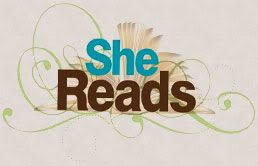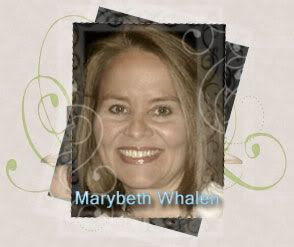
She Reads exists to honor Christ by connecting readers with novels that:
- inspire through excellent writing
- explore deep issues of faith
- initiate change in the reader’s life
Each month, the She Reads book club will offer a current title as featured selections. Readers have vast differences in taste and for this reason diverse genres and authors will be chosen.
Why should I join She Reads?
Readers who join She Reads receive a number of benefits, including:
- Connection with other readers on the She Reads blog who are passionate about great fiction and uplifting stories.
- Information via the She Reads newsletter that will keep readers up to date on their favorite authors, and books, with a few surprises thrown in for fun.
- Reviews of newly released titles written by a variety of readers, writers, and industry professionals.
- Options to create a She Reads book club or bring an existing club under the She Reads umbrella.
- Relationships developed within the intimate setting of a regular book club meeting.
- Fun planned study guides with activities and interesting facts developed specifically for the She Reads book club.
- Online Community for those who can’t participate in a monthly meeting (or don’t live near an existing club), via the She Reads blog and Facebook group.
- Pre-selected novels they can trust and appreciate – an important aspect in today’s economy where every buying decision requires a second thought.
- Access to authors they love through print interviews, meet and greets, conference calls, etc. Each selected author will participate in two conference calls with the first 100 guests (per call) who sign up. This will be a free service and a chance for readers to have their questions answered by the authors themselves!
- Free books from time to time via contests, giveaways, and publisher promotions.
Of all the diversions of life, there is none so proper to fill upits empty spaces as the reading of useful and entertaining authors.
~ Joseph Addison ~

I thought of this recently as I made my weekly visit to the library. I passed books on the shelf that I had read and loved and smiled at them like old friends. I watched a woman picked up a book that had been a favorite of mine and, on impulse, I recommended it to her. "That's a great one," I offered. "A good choice."
She looked at me with narrowed eyes as though trying to remember when she had asked my opinion. I grinned and continued with my search for a book that would inspire that same kind of passion in me. I did not look back to see if she took my advice and checked out the book I recommended.
As a writer, I want to write the books that people keep. Once I borrowed a copy of Gift From The Sea from a friend. I remember just as I was about to walk out with it my friend stopped me. "Hang on!" she said. "I want to write my name in it so I can be sure to get it back. This one's a book I want to keep." She paused. "It's special to me."
Isn't that every writer's longing? To write a book that readers want to keep, if for nothing else than to know it's there, to smile at it on their shelf? So what does a keeper look like? I thought of the books I have kept. In spite of my ever-shrinking shelf space they earned a permanent spot. These books are:
Moving. The book moved me emotionally. I connected with the plot, the premise, the outcome. I wanted to keep it because I wanted to preserve the connection.
Memorable Characters. I have spent time with these characters and loved them. When the book ends, I find myself wondering how they're doing. I wanted to keep the book because I wanted the characters close by.
Makes you think. Whether it's a surprise ending or a moral dilemma the character faced, the book kept me enthralled and made me ponder life from a different angle or made me dig deeper into some of my own beliefs. I wanted to keep it because it earned my respect.
Masterful writing. When I read the book I caught myself going back to re-read certain sentences or paragraphs because the writing was just that good. I wanted to keep the book because the writer created an amazing work.
Motivates me to be a better writer. When I closed the book I thought to myself, "I wish I had written that book... or thought of that premise... or created those plot twists, etc." Reading good writing inspires really good writing. I kept the book because I want good writing close at hand.
My co-director at She Reads, Ariel Allison Lawhon says, "The beautiful thing is that every writer can control the elements that make a book a keeper. We can't control marketing or promotion or cover design or even the title. But we can write really good books." The next time you are thinking about your novel, don't think about getting published or the brand or the title or anything else. Think instead about the books you have kept and how you can write a book that is a keeper.
Ariel and I thought we'd make a brief list of the books we consider keepers. We would love for you to share yours!
Ariel's list: Water For Elephants by Sara Gruen, The Time Traveler's Wife by Audrey Niffenegger, Kite Runner by Khaled Hosseini, Kathryn Stockett's The Help, Keeper Of The Bees by Jean Stratton Porter, anything by George MacDonald or C.S. Lewis, and all of the She Reads selections,
Marybeths' list: all the She Reads picks, Kathleen McCleary's House And Home, Prince Of Tides by Pat Conroy (the book that cemented my desire to be a writer), all of Lee Smith's titles, Susan Meissner's Blue Heart Blessed, Love Walked In by Marisa De Los Santos, The Pact by Jodi Picoult














